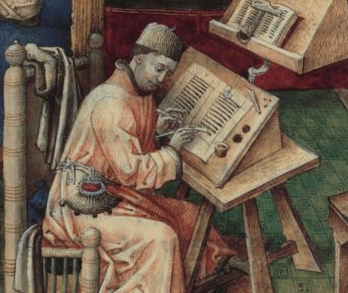
A unique and exciting introduction to the genre and craft of historical fiction, for curious students, aspiring authors--anyone with a passion for the past. Read classics of the genre, encounter bestselling writers of historical fiction, and discover your own historical archive while interacting with a global community of interested readers.
What's inside
Syllabus
Course Roadmap
In this module Professor Holsinger poses a working definition of historical fiction and sets expectations for the course content and assignments.
Read more
Syllabus
Good to know
Save this course
Reviews summary
Well-received historical fiction lectures
Activities
Gather Resources and Tools
Show steps
Collect a set of writing tools, websites, and resources to supplement your research and writing process.
Show steps
-
Set up a research journal
-
Identify resources and tools
-
Organize resources and tools
-
Share your list with other students
Develop Historical Character Profiles
Show steps
Create well-rounded character sketches that include historical and fictional character traits, motivations, and relationships.
Browse courses on
Character Development
Show steps
-
Establish character name and occupations
-
Establish physical descriptions
-
Establish personality traits
-
Establish motivations and desires
-
Establish relationships with each other
Character Dialogue Practice
Show steps
Improve your ability to write believable and engaging dialogue between characters.
Browse courses on
Dialogue Writing
Show steps
-
Practice daily writing exercises
-
Read and analyze great examples of dialogue
-
Get feedback from others
-
Revise and rewrite your dialogue
Show all three activities
Gather Resources and Tools
Show steps
Collect a set of writing tools, websites, and resources to supplement your research and writing process.
Show steps
- Set up a research journal
- Identify resources and tools
- Organize resources and tools
- Share your list with other students
Develop Historical Character Profiles
Show steps
Create well-rounded character sketches that include historical and fictional character traits, motivations, and relationships.
Browse courses on
Character Development
Show steps
- Establish character name and occupations
- Establish physical descriptions
- Establish personality traits
- Establish motivations and desires
- Establish relationships with each other
Character Dialogue Practice
Show steps
Improve your ability to write believable and engaging dialogue between characters.
Browse courses on
Dialogue Writing
Show steps
- Practice daily writing exercises
- Read and analyze great examples of dialogue
- Get feedback from others
- Revise and rewrite your dialogue
Career center
Historian
Professor
Archivist
Historical Interpreter
Author
Museum Educator
Curator
Museum Archivist
Researcher
Editor
Documentarian
Librarian
Teacher
Journalist
Copywriter
Reading list
Share
Similar courses
OpenCourser helps millions of learners each year. People visit us to learn workspace skills, ace their exams, and nurture their curiosity.
Our extensive catalog contains over 50,000 courses and twice as many books. Browse by search, by topic, or even by career interests. We'll match you to the right resources quickly.
Find this site helpful? Tell a friend about us.
We're supported by our community of learners. When you purchase or subscribe to courses and programs or purchase books, we may earn a commission from our partners.
Your purchases help us maintain our catalog and keep our servers humming without ads.
Thank you for supporting OpenCourser.


